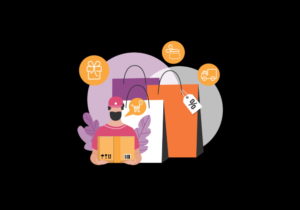New Digital Age has partnered with Entropy for the launch of Digital Commerce for the New Decade, a, now virtual, event featuring brands including GSK, Stella McCartney, Pernod Ricard and HSBC.
Ahead of the event, we talk to speaker Amy Winchester, Head of Publicity at Unbound.com.
How do you expect developments in digital commerce will affect your company over the coming years?
We’re anticipating more and more uptake of Google and Apple Pay. As ecommerce gets faster and smoother, companies that have prioritised writing beautiful, elegant and efficient mobile device checkouts will be in the strongest position.
What do you think the biggest challenges are for the ecommerce sector and how can they be overcome?
Maintaining a strong brand presence will be challenging in an increasingly consolidated world.
Have you seen any interesting digital commerce innovation recently that you’d like to share with readers?
I’m really interested in the way other publishing startups are changing the way we purchase books, particularly brands like Perlego, which provides a subscription service which gives you electronic access to a huge range of academic texts.
How do you expect developments in machine learning and connected TV will affect digital commerce?
Speaking generally, connected TV means consumers have instant access to whatever content they want, whenever they want it. As a business we’d hope better micro-targeting would allow us to reach more people with our projects, and as a small business we’re quite good at pivoting into new technologies.
But I’m more interested in how it will affect consumerism generally.
Unbound offers users a unique way to interact with books and authors, but the rewards aren’t instant – it takes about a year for the book you pledged towards to appear on your doormat.
We’ll always be a business built on the idea of “slow” gratification.
What will you speak about at Digital Commerce For The Next Decade?
Unbound is the world’s first crowdfunding publisher, founded in 2011 by three writers. I’ll be explaining how we disrupted traditional publishing and the way we sell books, as well as looking more broadly at how subscription models and personalisation are affecting the industry.












